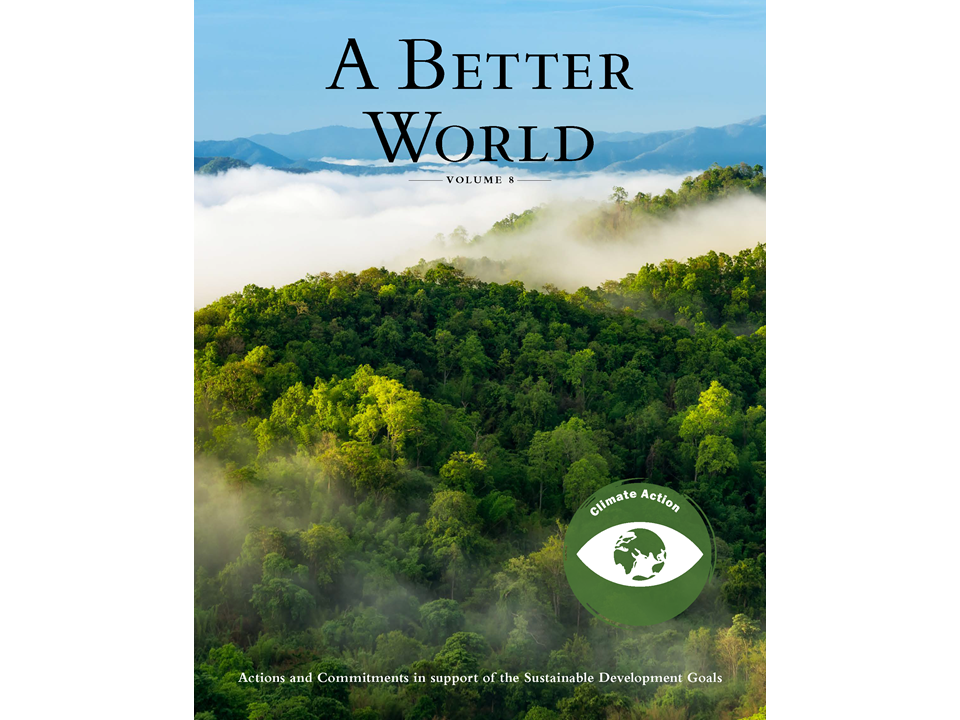Pick Up
500. A Better World-SDG 13

The Sixth Assessment Report of the Intergovernmental Panel on Climate Change (IPCC), Working Group I Report (Natural Science Basis), issued last August 9, clearly stated for the first time that human activity is the cause of climate change. The atmospheric concentration of greenhouse gases such as CO2, the cause of global warming, has been increasing year by year, and the international community has been taking various measures to address this problem. The Paris Agreement adopted in 2015 established a mechanism for both developed and developing countries to submit reduction targets for climate change issues and report on their implementation. Furthermore, the Koronivia Joint Work was adopted at COP23 in 2017, laying the groundwork for substantive efforts in agriculture. During the COP26 Glasgow Conference, which is still fresh in our minds, the United States and EU jointly announced the Global Methane Pledge, a major move in which 111 countries pledged their participation in the goal to reduce methane emissions by 30% by 2030.
These efforts are closely linked to the Sustainable Development Goals (SDGs), especially the 13th goal of the SDGs, "Take concrete action on climate change," which calls on the international community to take urgent and rapid measures to address the various problems caused by climate change. In response to this call, A Better World-SDG13 was published by the Forum for Human Development. The purpose of this book is to make the necessary changes toward a better world through education, innovation, and adherence to climate change commitments. The Environment Program of JIRCAS also presented in the book its research agenda on climate change, with a focus on the Asian Monsoon Region.
Under the Fifth Medium- and Long-term Plan, the Environment Program has been working on the three pillars of "Climate Change Response," "Resource Recycling," and "Environmental Conservation" through six projects: “Climate change measures in Monsoon Asia”, “Carbon recycling”, “BNI-system”, “Adaptive forestry”, “Yama-Sato-Umi agrosystem connectivity”, and “Sustainable management system in highlands”. We are engaged in research to solve problems for agriculture, forestry, and fisheries in developing regions.
References
A Better World: https://www.humandevelopmentforum.org/digital/A-Better-World-Vol-8/inde…
JIRCAS Environment Program: https://www.jircas.go.jp/en/program/proa
Contributor: HAYASHI Keiichi (Director, Environment Program)
